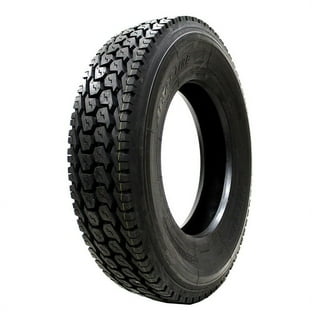Tire Service: Recognizing Tire Stress Tracking Systems
Comprehending Tire Stress Tracking Equipments (TPMS) is an important facet of keeping optimum automobile efficiency and safety on the road. With developments in vehicle modern technology, TPMS has actually ended up being a conventional feature in modern vehicles, providing real-time info on tire stress levels.

Relevance of TPMS
The value of Tire Stress Tracking Equipments (TPMS) depends on their capacity to improve car security and performance through real-time monitoring of tire stress degrees. Preserving the appropriate tire pressure is crucial for guaranteeing ideal handling, stopping, and general security of a car. TPMS supplies chauffeurs with immediate responses on any kind of overinflated or underinflated tires, enabling for timely changes to be made.
Components of TPMS
Comprising different crucial elements, a Tire Pressure Surveillance System (TPMS) functions as an advanced safety and security feature in modern automobiles. The main elements of a TPMS include sensing units, a control component, and a caution indication. Sensing units are typically located in the tire valve stem or affixed to the wheel assembly, where they determine tire pressure and transfer information to the control module. The control component processes this info and activates a caution if it discovers dramatically reduced stress in any one of the tires. The warning indication, typically a sign on the dashboard, notifies the vehicle driver to inspect the affected tire or tires. Some progressed TPMS models additionally present the real tire stress analyses for each and every tire, giving vehicle drivers with real-time details to make certain optimal tire performance and safety. By monitoring tire stress continuously, TPMS assists protect against accidents, reduces tire wear, and enhances gas efficiency, making it a critical part for lorry safety and security and efficiency.
Sorts Of TPMS

On the other hand, indirect TPMS counts on the automobile's wheel speed sensors to keep an eye on tire stress. This system discovers underinflation by contrasting the rotational rates of the wheels. Indirect TPMS is much less pricey than straight TPMS, as it makes use of existing sensing units within the vehicle.
While direct TPMS uses a lot check out this site more exact analyses, indirect TPMS is simpler in style and typically requires less maintenance. Both systems have their constraints and benefits, and the option in between them commonly relies on elements such as expense, car make, and personal preference. Comprehending the differences in between these two sorts of TPMS can help car owners make informed choices concerning tire maintenance and safety.
TPMS Upkeep Tips
Reliable upkeep of TPMS is essential for guaranteeing ideal performance and safety of your lorry. Regularly inspecting the TPMS sensing units for any kind of damage or corrosion is crucial. Make certain that the sensing units are tidy and cost-free from particles that might interfere with their performance. In addition, it is a good idea to inspect the sensor batteries occasionally and replace them as required to ensure accurate analyses. Conduct routine checks on the tire stress degrees and compare them with the TPMS analyses to guarantee they correspond. If there are any kind of disparities, alter the system adhering to the maker's standards. Throughout tire turning or replacement, make certain that the TPMS parts are taken care of carefully to protect against any possible damages. If the TPMS advising light illuminates on the control panel, resolve the issue without delay by checking the tire pressures and the general system for any type of mistakes. By adhering to these upkeep ideas, you can lengthen the life-span of your TPMS and enhance the safety of your driving experience.
Advantages of Appropriate Tire Pressure
Keeping proper tire stress, as highlighted in TPMS Maintenance Tips, is crucial for enjoying the numerous benefits connected with optimal tire pressure degrees. In addition, proper tire stress makes certain also tire wear, prolonging the life-span of the tires and promoting safer driving problems. In verdict, the advantages of appropriate tire stress go past simply tire longevity; website link they include boosted fuel performance, enhanced safety, much better lorry performance, and overall driving comfort.
Final Thought
In conclusion, comprehending tire stress monitoring systems (TPMS) is vital for maintaining ideal tire pressure and making certain vehicle safety. By acknowledging the relevance of TPMS, knowing with its components, knowing the different types offered, sticking to appropriate upkeep tips, and realizing the benefits of preserving proper tire stress, motorists can boost their driving experience and lengthen the life-span of their tires. Correct tire stress is crucial to safe and efficient vehicle procedure.
